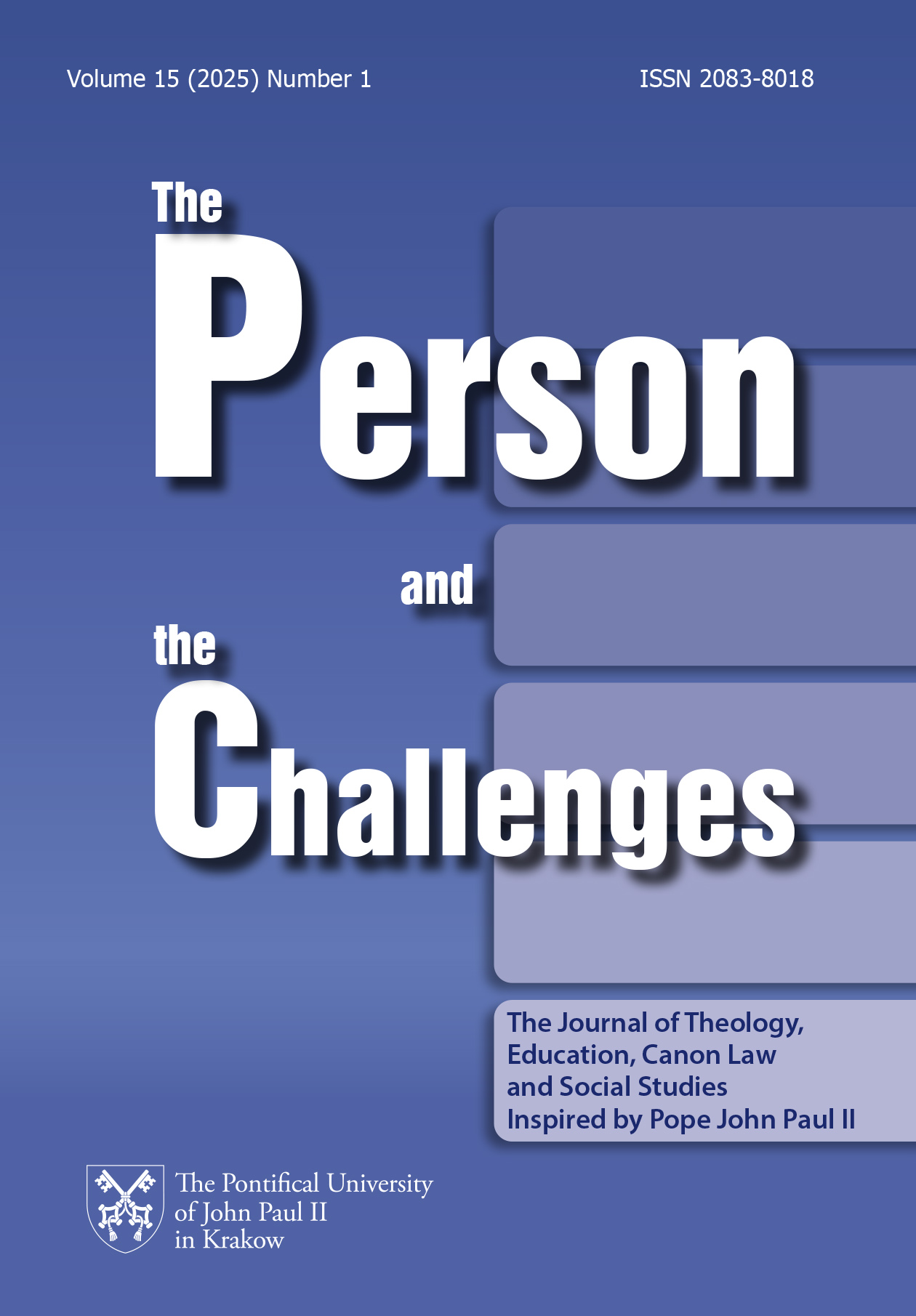The pursuit of the good life in the philosophical explorations of Immanuel Kant, Jean Nabert and Paul Ricoeur
DOI:
https://doi.org/10.15633/pch.15107Keywords:
happiness, good life, good, evil, suffering, freedomAbstract
This article will present the concept of “good life” in the ethics of I. Kant and its criticism by the representative of the philosophy of consciousness J. Nabert and P. Ricoeur. The identification of the pursuit of the “good life” with the pursuit of happiness comes from Greek eudaimonism. In Kant, the achievement of happiness was reduced to obedience to the law. The source of evil is immorality, identified by him as disobedience to the law. The limitations and erroneous assumptions of this formalistic concept were demonstrated by J. Nabert and P. Ricoeur. Nabert accused Kantian ethics of using an abstract notion of freedom and not considering the inner experience. On the basis of Kant’s criticism, Nabert developed his own concept of evil as the unjustifiable and the possibility of overcoming evil through the desire for justification. Ricoeur, in turn, criticised, among other things, the Kantian reduction of all forms of emotionality to the sphere of desire, which closes the way to a meaningful discussion of happiness, suffering or evil. Moreover, he pointed out the flaws in the very reduction of happiness to the “good life.” Against the background of these remarks, we discuss the contemporary limitations of philosophical reflections on good and evil and happiness and unhappiness.
References
Kant I., Critique of practical reason, transl. M. Gregor, Cambridge 1997, Cambridge University Press.
Kant I., Groundwork of the metaphysics of morals, transl. M. Gregor, Cambridge 2003, Cambridge University Press.
Klemm D. E., The hermeneutical theory of Paul Ricoeur. A constructive analysis, London, Toronto 1983, Bucknell University Press.
Nabert J., Essai sur le mal, Paris 1970, Aubier–Montaigne.
Nabert J., L’expérience intérieure de la liberté et autres essais de philosophie morale, Paris 1994, PUF.
Nabert J., Le désir de Dieu, Paris 1966, Aubier–Montaigne.
Ricoeur P., Freud and philosophy. An essay on interpretation, New Haven and London 1970, Yale University Press.
Ricoeur P., Towards a hermeneutics of the idea of Revelation, in: P. Ricoeur, Essays on Biblical interpretation, Philadelphia 1980, Fortress Press, pp. 73–118.
Ricoeur P., Fallible man. Philosophy of the will, Chicago 1965, Henry Regnery Company.
Ricoeur P., Oneself as another, Chicago 1992, University of Chicago Press.
Downloads
Published
Issue
Section
License
Copyright (c) 2025 Barbara Żmuda-Frydrychowska

This work is licensed under a Creative Commons Attribution 4.0 International License.
Authors who publish with this journal agree to the following terms:
- Authors retain the copyright and full publishing rights without restrictions, and grant the journal right of first publication with the work simultaneously licensed under a Creative Commons Attribution 4.0 International License that allows others to share the work with an acknowledgement of the work's authorship and initial publication in this journal.
- Authors are able to enter into separate, additional contractual arrangements for the non-exclusive distribution of the journal's published version of the work (e.g., post it to an institutional repository or publish it in a book), with an acknowledgement of its initial publication in this journal.
- Authors are permitted and encouraged to post their work online (e.g., in institutional repositories or on their website) prior to and during the submission process, as it can lead to productive exchanges, as well as earlier and greater citation of published work (See The Effect of Open Access).

